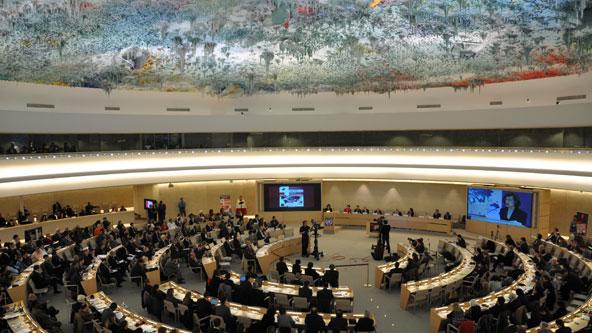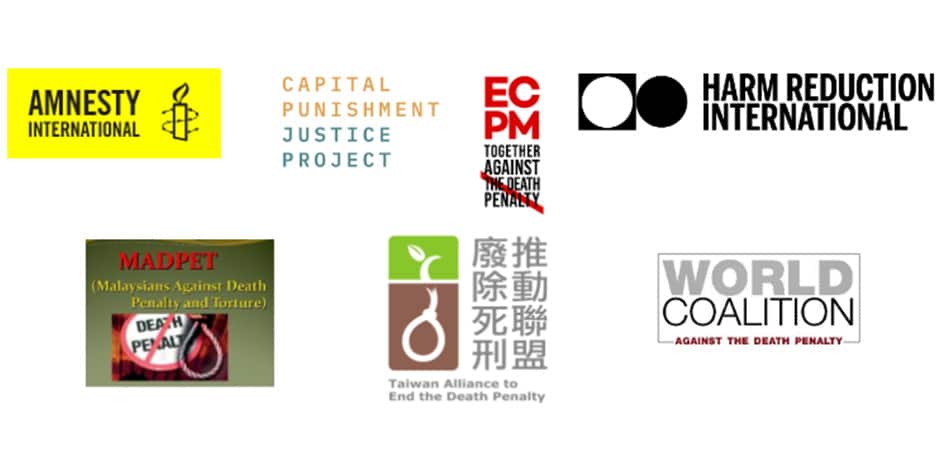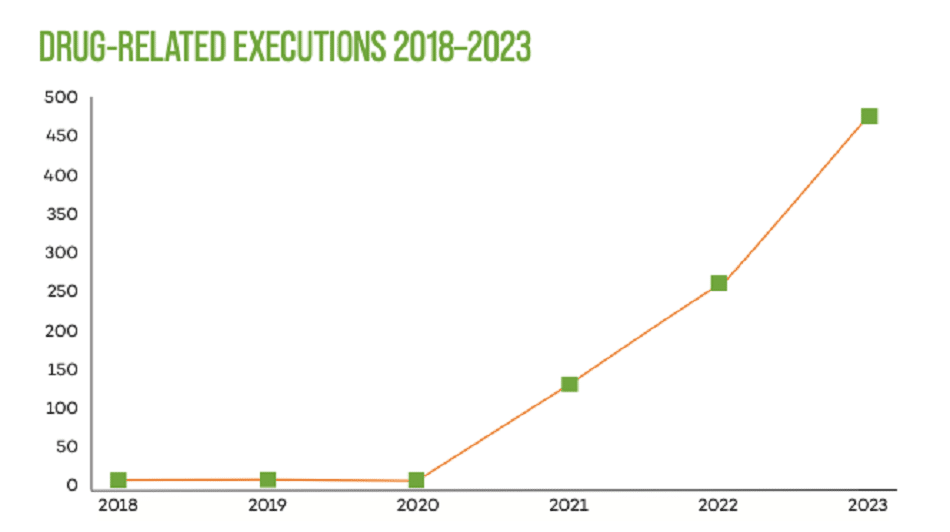
Discussing the Death Penalty for Drug Crimes at the Human Rights Council
International standards
What happens when policies supposed to protect the life of people end up taking life off of them?
This has been one of the topic discussed at the side event organized by members of the World Coalition on the morning of the Human Rights Council Panel Discussion on the impact of the world drug problem on the enjoyment of human rights.
Two weeks ahead the 13th World Day Against the Death Penalty, the round table developed a debate on the issue of death penalty for drug crimes. It also gave a start to the lobbying action onwards the next Special Session of the UN General Assembly on the World Drug Problem (UNGASS).
Capital punishment is a contradictory weapon to fight drug crimes
Raphaël Chenuil-Hazan, the Executive Director of ECPM, opened the Round Table by presenting the current situation of the death penalty for drug-related offences to the audience, among which stood out around 50 delegations of States.
Even if, since the 1980s, the general trend is towards the abolition of the death penalty, there are still 33 countries and territories that retain the death penalty for drug offences. In particular, the executions for drug-related crimes are increasing. It is dismaying to know that convictions to death are often applied to persons found guilty of the consumption, trafficking or possession of soft drugs, as cannabis. Clearly, this stands in opposition to the trend towards the decriminalization of soft drugs as, precisely, cannabis. It is intolerable that, while someone can freely make use of cannabis for not-medical use in Uruguay or in Oregon, someone else may be sentenced to death in Indonesia, if found guilty of dealing cannabis.
The death penalty does not reduce drug crimes
The representative of Singapore insisted that the death penalty is an “effective deterrent” to counterbalance the drug trafficking in his country. However, no empirical research has ever proved that capital punishment, and the fear of being executed, act as a deterrence. On the contrary, the Executive Director of the International Drug Policy Consortium, Ms. Ann Fordham, displayed the negative effects of the fear of criminal sanctions. For instance, people who make use of drugs are often driven away from lifesaving harm reduction services by the fear to incur in criminal sanctions.
Another point raised at the Human Rights Council Panel Discussion is that capital punishment is more likely to affect the mere bit players of the illicit drug trade. Thus, it does not really manage to break the chain of the illicit drug trafficking.
UNODC must assume its responsibilities
The United Nations Office on Drugs and Crime (UNODC) bears his part of responsibility for the aggressive anti-drug policies implemented in certain countries. Mrs. Elizabeth Zitrin, President of the World Coalition Against the Death Penalty, underlined the role of UNODC in the struggle against the drug trade. Even if UNODC says to advocate the abolition of the death penalty, in practice, its standard-settings methods often end up to encourage capital convictions. On this issue, Mahmood Amirt-Moghaddam, the spokesperson for Iran Human Rights, discussed the exemplary case of Iran. Notwithstanding the aggressive Iranian anti-drugs policies, often encouraged by UNODC, no achievements have been made in relation to the reduction of drug crimes. Neither the increase in executions brought about positive results.
Together Against the Death Penalty (ECPM), International Educational Development (IED), Iran Human Rights (IHR), and the Kurdistan Human Rights-Geneva (KMMK-G) took also the opportunity to give a statement during the session calling UNODC and its donor countries cooperating with Iran to condition their cooperation on a moratorium on the death penalty for drug-related crimes.
Which foreseeable progress?
Both Ms. Ann Fordham and Ms. Flavia Pansieri, the UN Deputy High Commissioner for Human Rights, asserted the need to halt executions for offences that do not belong to the category of “most serious crimes”. According to the latest interpretations, drug-related offences do not fall under that category.
Moreover, the UN Human Right Council presented its Report on Capital punishment and the implementation of the safeguards guaranteeing protection of the rights of those facing the death penalty. One of its conclusion is that the imposition of the death penalty is incompatible with fundamental tenets of human rights.
The idea of progress coming out from the Human Rights Council’s Side Event is clear: There must be no place for anti-drug policy violating the most fundamental rights.
Categories
Drug Offenses






